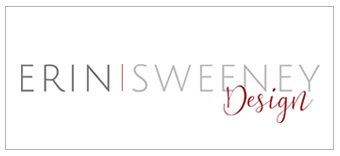.COM, .NET, .ORG…Which Do I Choose?
Don’t worry. Many business owners suffer from Extension Confusion. With so many options available, it’s hard to know which to choose. Well, help is here. This article will examine some of the top level domains, how they came to be, what they mean, and which ones are best for your business.
How It All Began
In the beginning, the primary extension for commercial businesses was .COM. Network-related businesses used .NET, while non-profits stuck with .ORG. But, while many may still consider this the case, it no longer is. This way of “organizing” websites became unworkable. Today, registrants (domain owners) are able to freely choose any one of these 3 primary extensions. This being the case, some businesses opt to purchase all three extensions to secure their web presence and control their brand. In addition, purchasing the top extensions can increase your SEO. But, it’s important to know that they aren’t the only ones out there. In addition to the “Big Three,” many more extensions now exist. Let’s take a look at some of the more well-known extensions and learn which ones may work for your business.
“The Most Popular”
Commercial businesses use a .COM extension. It’s the most well-known extension. 52% of all websites are .COM sites. Many businesses choose the extension because it’s the “default” domain extension and offers easy recall. Basically, if your business can grab a .COM extension, do it.
“The Runner Up”
Originally intended to denote networking and tech companies, .NET extensions have basically become the second best option if .COM is not available.
“The Non-Profit”
Many believe that the .ORG extension is exclusive to non-profits. That may have been its original intention, but not anymore. Technically, it’s open to anyone, though it’s suggested that businesses stay away from it since the expectation is still very much noted in a “non-profit” format.
“The Informer”
Now that we’ve announced the top three winners, the one that just misses out on a medal is the 4th most popular extension, .INFO. Basically, websites that are a resource use this extension because it is synonymous with information.
“We Mean Business”
Though this is the top-level domain meant exclusively for business, buyers beware. Some .BIZ sites are seen as spammy and low-quality. Though technically used for small business websites, depending on what your product or services are, you might want to avoid this domain extension.
“The Mobile One”
Websites that are only meant for a mobile device may choose the .MOBI extension.
“The Selfie”
Interested in personal branding? Consider a .ME extension.
“The Educator”
Sites that use the .EDU extension are limited to regionally accredited degree-granting institutions of higher education that are accredited by a U.S. regional accrediting agency. In other words, if you’re not a degree granting institution, you can’t use a .EDU extension.
“Uncle Sam”
Only official government organizations in the United States, including Federal, State, and Local governments are able to use the .GOV extension.
“World Tour”
Numerous domains specific to countries are for sale. These include .UK (United Kingdom), .ASIA (Asia), .EU (Europe), .MX (Mexico), and many (MANY!) more.
OK. So I know what they all mean. Now what?
It’s time to sit down, take a deep breath, and simply make a decision. Choosing your domain name and extension is important, but the end goal of your website is to provide quality content, be informative, be user-friendly, and to generate leads. Being committed to your website by engaging others, adding fresh content, analyzing your website traffic and making adjustments is more important to your online presence than your domain extension. But, knowing how to start is a great first step.
Was this article helpful or informative? Please Like or Share. Thank you!
[fb_button]



